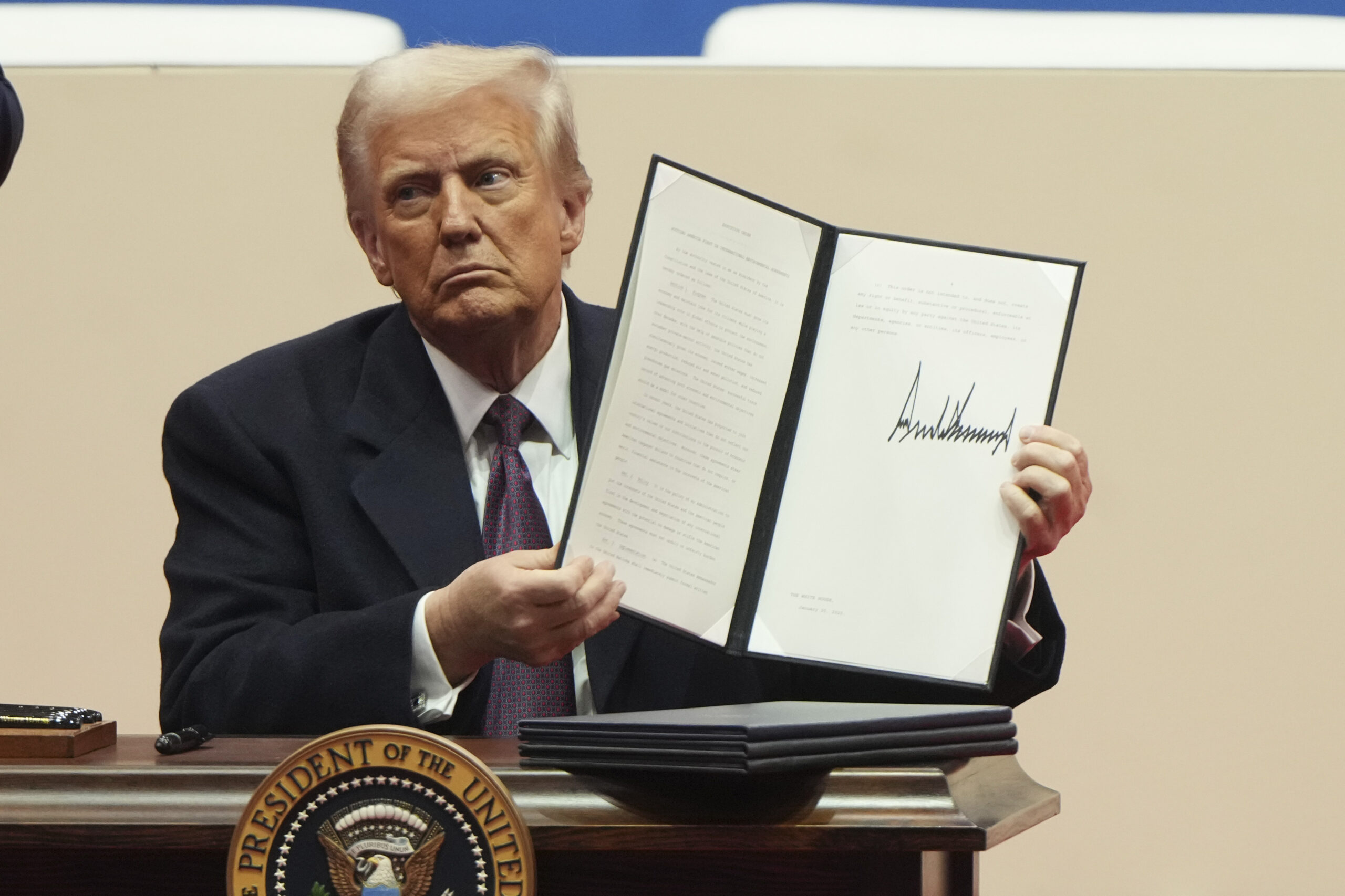
AP Picture/Matt Rourke
Two constitutional students argued in an opinion piece printed via The New York Instances on Saturday that President Donald Trump would possibly “have a case” regarding his embattled executive order making an attempt to finish birthright citizenship for the youngsters of illegal migrants.
Professors Randy Barnett and Ilan Wurman wrote that even supposing it has been argued Trump’s order is at odds with language within the 14th Amendment, there can be extra nuance to the issue.
Barnett and Wurman made a case for why Trump might not directly succeed in challenging the most common interpretation of the 14th Modification’s “topic to the jurisdiction” clause.
They argued that the key query could come right down to now not where an individual is born but whether that particular person’s oldsters had ever entered right into a social compact with the united states – something they said had no longer been strictly addressed in a lot of landmark instances relationship back to 1830:
The reply most prison observers supply is that it contains nearly anyone born on American soil, together with these whom the order is meant to exclude, particularly youngsters born to oldsters in the united states of america illegally or temporarily. Certainly, on Monday, the American Bar Affiliation described the order as an assault on a “constitutionally secure” right. Federal judges in 4 states have enjoined the order, with one claiming that it “conflicts with the simple language of the 14th Modification.”
No longer necessarily.
The Supreme Court docket has held, within the 1898 case United States v. Wong Kim Ark, that kids born here to permanent residents are electorate. But it has never squarely held that kids born to these illegally present are citizens. When the court docket addresses that query — which it virtually surely should — it will have to imagine the 14th Amendment’s unique objective and the well-liked-law concept of “jus soli,” or birthright citizenship, which informed the unique public that means of the text. Both relate to the idea of social compact and contradict these days’s normal assumption that the fashionable-regulation theory depends solely upon hometown.
Per Barnett and Wurman, fashionable-law principle traditionally excluded kids of international diplomats, Native Americans, and others outside the “jurisdiction” of the US.
Native American citizenship was once made up our minds by the Indian Citizenship Act of 1924.
Barnett and Wurman also addressed these whose folks were “current in america illegally,” which, once more, they said had not been strictly addressed relating to the youngsters of illegal migrants in other cases argued earlier than the courtroom.
The 2 asked, “Has a citizen of some other usa who violated the rules of this usa to gain entry and unlawfully stay here pledged obedience to the rules in exchange for the protection and good thing about those regulations?” They persisted:
Evidently, the oldsters usually are not enemies within the sense of an invading army, however they didn’t are available in amity. They gave no obedience or allegiance to the country when they entered — one can not give allegiance and promise to be bound by means of the regulations through an act of defiance of those regulations. Such persons can even be summarily removed from the united states with out judicial approaches of the type that would offer protection to electorate. If the allegiance-for-protection view informed the unique that means of the textual content, then they and their youngsters are subsequently now not beneath the protection or “topic to the jurisdiction” of the nation within the related experience.
Barnett and Wurman concluded that will have to the Supreme Court docket revisit the difficulty of birthright citizenship, justices would possibly rule Trump has a legitimate argument.
“Once they eventually imagine this query, the justices will to find that the case for Mr. Trump’s order is more desirable than his critics notice,” the pair wrote.
Trump issued an executive order on the topic on Jan. 20 which he mentioned would protect the “that means and price of American citizenship.” The order has been blocked by using a large number of federal judges.
The post NYT Opinion Piece Argues Trump ‘Might Have A Case’ On Birthright Citizenship first regarded on Mediaite.



